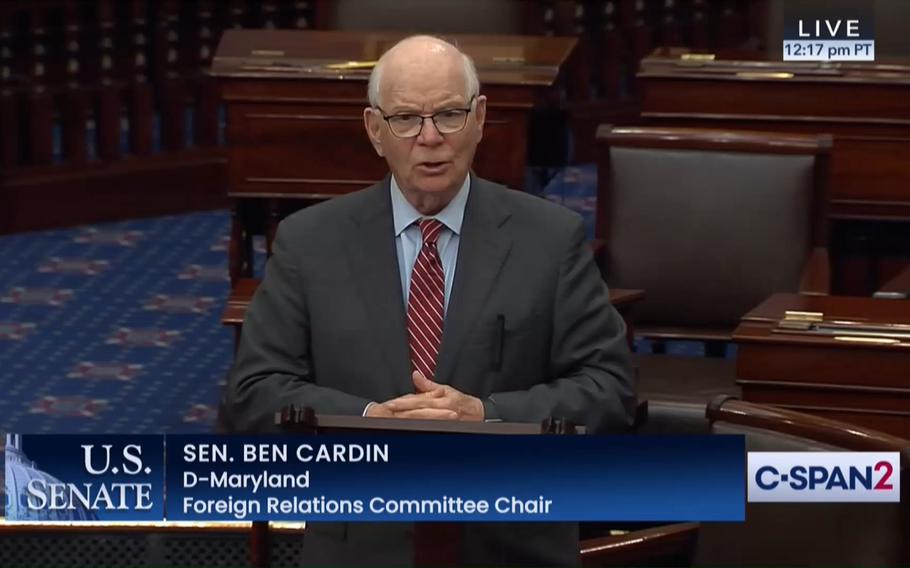- Details
- East Africa
- 725
Sen. Ben Cardin (D-Md.) delivers remarks urging diplomatic intervention in Sudan, Aug. 29, 2024. Cardin is the chair of the Senate Foreign Relations Committee. (C-Span via Senate Foreign Relations Committee)
A United States senator, Ben Cardin has recognized the imperiled state of the people in Sudan’s North Darfur state capital, El Fasher and urged the diplomatic community to take immediate action to the stop mass atrocities from continuing.
“The people of El Fasher, already devastated by bombings and shelling from the Sudan Armed Forces (SAF), now face an imminent threat from the Rapid Support Forces (RSF), which is massing troops for another brutal assault as part of their ongoing campaign of destruction across Sudan,” he remarked.
Cardin, a member of the Senate Foreign Relations Committee said those living in famine-stricken Zam Zam camp are now also at dire risk of mass atrocities should the RSF launch this offensive. “I urge the entire diplomatic community — bilateral, regional, and multilateral partners — to unequivocally demand that the RSF, the SAF, and their allied forces immediately stand down.
The international community must be ready to deploy every diplomatic tool to prevent this attack — including the renewal of the current U.N. arms embargo on Darfur and its expansion to cover the entire country — and to pressure all parties to end their horrendous assaults on the Sudanese people and provide cross-border and crossline access for humanitarian assistance,” explained the Senator. “Those responsible for these abuses, along with their enablers, must face justice. I stand with the people of Sudan in their continued pursuit of peace,” he added.
The U.S. and Saudi Arabia have been making efforts to halt fighting between Sudan’s army and paramilitary Rapid Support Forces (RSF). The lack of progress at the talks in Jeddah ruined hopes for the resolution of a conflict that has displaced more than a million inside and outside Sudan, decimated the economy, and triggered ethnically driven massacres in Sudan’s Darfur region.
Talks in Jeddah were first suspended in June and resumed in October. Another round in Geneva last week adjourned with no new agreement. However, Sudanese sources at the talks said after commitments to calm the rhetoric, capture Al-Bashir cronies and facilitate humanitarian assistance went unfulfilled.
Representatives for the two sides, who were not meeting face to face, remained at odds over the RSF’s occupation of much of Khartoum, the sources said. The army has demanded that the RSF withdraws to specific bases and rejected an RSF counterproposal that it vacates civilians’ and set up checkpoints around the city. ST






